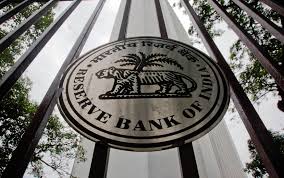
Interest rates that money lenders charged borrowers hardly budged for decades irrespective of policy decisions. But even that is collapsing faster than what it is in the formal banking system, thanks to the implementation of Goods and Services Tax.
Borrowing in the informal market is no more lucrative.
Lenders who fund small traders and merchants have lowered their rates to just a third of what they were charging, but still the demand is not showing up.
Rates have dipped to a third to 6 per cent from 9-18 per cent about 6-9 months ago, said two dealers aware of the market dynamics.
“Those businessmen have now limited options to run operations in cash especially after GST implementation and demonetisation,” said a textile business owner, who did not want to be identified.
“From a local politician to an industrialist or local trader whoever has additional unaccounted cash are normally the lenders in this informal loan market.”
A huge army of businessmen borrowed in an informal market from money lenders to avoid getting trapped by the banking system and the tax department. This was known as ‘Kachha Credit’ among practitioners.
With the implementation of GST which produces a chain of transactions till it reaches the ultimate consumer, merchants have little scope to escape accounting for their trades.
So, instead of funding their purchases through informal credit at high rates which was beneficial since it allowed escaping the tax net, they are choosing to fund businesses through formal credit. To keep businesses running, money lenders have lowered rates.
Since the tax department is keeping close watch on businesses, all traders preferred anonymity. This market is known as a plat form for lending and borrowing unaccounted or untaxed money without any collateral. Traders now shy away from availing such credit amid cash squeeze triggered by reform measures like GST and demonetisation. Sometimes, people take highly leveraged positions borrowing such money, which a bank would have declined.
A garment trader who may be eligible to borrow say, Rs 10 lakh in the absence of creditworthy balance sheet, can take a loan up to Rs 50 lakh due to personal knowledge of businesses, dealers said. The practice is prevalent in the garment industry.
Mumbai’s Bhiwandi, a business centre, used to be the hotbed of it. It has died down after the Central Value Added Tax, a central government tax levy introduced by Vajpayee led NDA, was introduced.
Source: Economic Times





